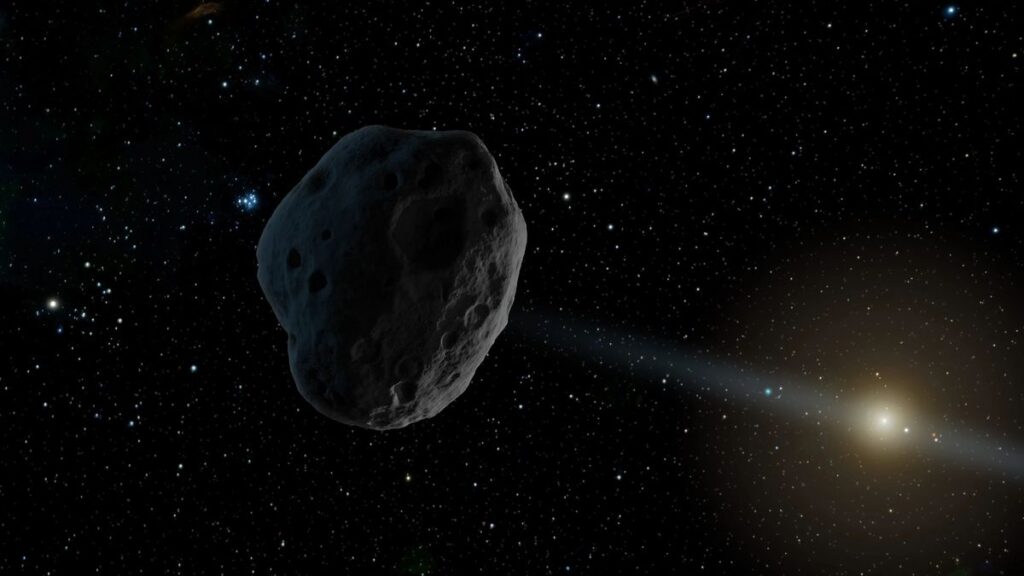Introduction of Space Discoveries 2025.
The cosmos has long captivated and intrigued humanity. Every passing year takes us closer to unraveling its enigmas, as astonishing breakthroughs continue to redefine our perception of space. In the approaching year of 2025, the rate at which we advance in space technology is surpassing all previous records. Reaping the rewards of our explorations, such as the recent discovery of additional exoplanets and groundbreaking insights into black holes, the universe is revealing its marvels in unprecedented ways during space discoveries 2025.
Join us as we delve into the latest space discoveries of 2025. From mind-blowing findings to intriguing developments, this blog post has something for everyone interested in the vastness of our universe. So fasten your seatbelts and get ready to embark on an exhilarating journey through the ever-evolving world of space exploration.
The Advancements in Space Discoveries Technology.
Revolutionary developments in space technology have taken center stage in 2025, significantly altering our comprehension of the universe. Advancements such as ion drives and solar sails have greatly increased the viability of interstellar journeys. Thanks to AI-enabled robotic missions, data can now be analyzed in real-time during deep-space explorations. As a result, scientists are able to make swift decisions on the go. In addition, satellite technology has made great strides. The use of high-resolution imaging allows for enhanced visibility of faraway planets and cosmic occurrences.
Furthermore, joint initiatives between countries are expediting the progress of research and development. These global alliances are combining their assets for ambitious undertakings focused on unveiling mysteries within our solar system. With the advancements in technology, we can now achieve greater efficiency and lower costs. This has opened up new possibilities for exploration, paving the way for a groundbreaking era. As we push further into space, these innovations hold the potential to reveal mysteries that were once beyond our wildest dreams.
Exoplanet Exploration and Space Discoveries 2025.
The search for exoplanets continues to amaze both scientists and enthusiasts. With the launch of new telescopes, a greater number of worlds outside our solar system are being discovered. June 2025 has already brought forth thrilling discoveries. Recent findings suggest a rise in the quantity of potentially habitable planets. These revelations prompt intriguing inquiries regarding extraterrestrial life. Certain recently discovered exoplanets orbit their stars at an optimal distance, indicating the presence of conditions ideal for liquid water.
Aside from discovering new exoplanets, scientists are also diving further into their atmospheres. Through groundbreaking methods, we can thoroughly examine the chemical makeups of these planets. This investigation may uncover any potential indications of extraterrestrial life on these remote celestial bodies. As each breakthrough of breaking space news 2025 is revealed, our anticipation for what’s to come grows. The endless depths of space hold an infinite number of mysteries waiting to be unearthed through continuous dedication and advanced technology.
Uncovering the Mysteries of Black Holes.
For centuries, black holes have captivated both researchers and sky-watchers. These mysterious forces push the boundaries of our knowledge in physics. With their massive gravitational pull, they distort the fabric of space and consume all nearby matter. New discoveries have illuminated the behavior of black holes. In 2019, the Event Horizon Telescope project successfully took a picture of a black hole’s shadow, exposing previously unattainable intricacies. This significant achievement has paved the way for further investigations.
In June 2025, astronomers revealed discoveries concerning an unforeseen incident connected to a supermassive black hole located in the core of a faraway galaxy. Peculiar cosmic occurrences were observed in its vicinity, expanding our understanding of these entities. As technology continues to progress, our ability to delve deeper into these enigmas is also increasing. Upcoming expeditions hold great potential for providing further understanding of their origin and significance in the universe’s development. With each new discovery, a new facet of this enthralling cosmic enigma is revealed.
Finding Evidence of Life Beyond Earth During Space Discoveries.
In 2025, the quest for extraterrestrial life has shifted significantly. Researchers have made captivating discoveries on multiple celestial objects within our solar system. New evidence indicates that Europa, one of Jupiter’s moons, may contain hidden seas containing a wealth of organic materials. Such an environment has the potential to sustain microorganisms, sparking enthusiasm among scientists. As we eagerly await updates from rovers studying its terrain, Mars continues to amaze us with fresh information. The revelation of previous water channels suggests the possibility of once hospitable conditions.
In addition, the recent discovery of phosphine gas in Venus’s atmosphere has reignited conversations about the possibility of life forms existing on the planet. This substance is commonly linked to biological activity on our own planet. As telescopes search faraway exoplanets for indications of suitability and signs of life, each advancement contributes to humanity’s journey to address significant inquiries about our role in the cosmos.
The Possibility of Interstellar Travel.
For centuries, the idea of interstellar travel has captured human imagination. Now, as technology advances, this once-distant concept edges closer to becoming a reality. New advances in propulsion technology have the potential to revolutionize space travel. The development of warp drives and solar sails presents exciting possibilities for drastically decreasing travel time over long distances. According to scientific calculations, it would take decades for current spacecraft speeds to reach the nearest star system, Alpha Centauri. However, there are new theories suggesting potential ways to traverse these vast distances at a much faster pace.

Moreover, the detection of habitable exoplanets generates enthusiasm for upcoming expeditions beyond our own solar system. The quest for viable destinations has never held more potential. As we delve deeper into space exploration, the importance of sustainable life support systems becomes increasingly apparent. This is vital in ensuring the success of long-term missions without compromising crew health or depleting resources on extended travels.
Conclusion: The Future of Space Discoveries and Exploration.
Amidst the excitement of groundbreaking findings, the prospects of space exploration are incredibly promising. The continuous progress in technology has opened doors for innovative approaches and resources, propelling our knowledge of the universe to new heights. The recent influx of exoplanet discoveries provides insight into potential habitable planets outside of our solar system, igniting a spark of hope for voyages to other star systems. The enigmatic nature of black holes continues to pique the curiosity of both scientists and enthusiasts, providing insights into phenomena that push the boundaries of our understanding of physics. Additionally, as we embark on new missions, such as those of Mars rovers which collect groundbreaking information, we come closer to unraveling long-standing mysteries about extraterrestrial life.
As cosmic phenomena continue to amaze and the discovery of interstellar objects becomes more common, one fact remains evident: humanity’s thirst for knowledge has no limits. The thrilling advancements expected in 2025 hold great potential for expanding scientific knowledge and igniting a sense of awe and optimism in future generations who gaze at the night sky.






